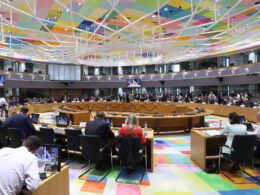Nescafé sourced 32% of its coffee from farmers practising regenerative agriculture in 2024, exceeding its 2025 target of 20%, according to the latest Nescafé Plan 2030 Progress Report released by Nestlé. The milestone reflects the growing adoption of sustainable farming methods among coffee producers amid rising climate-related challenges.
Regenerative practices supported by Nescafé include improved fertilisation, soil cover, mulching, and composting, which aim to enhance productivity while reducing environmental impact. Participating farmers recorded a reduction in greenhouse gas (GHG) emissions of between 20% and 40% per kilogram of green coffee during the year.
“Regenerative agriculture is at the heart of the Nescafé Plan and our efforts to build resilience in our coffee supply chain,” said Axel Touzet, Head of Nestlé’s Coffee Brands Strategic Business Unit. “This third Progress Report shows that farmers are becoming increasingly aware of the benefits of these practices, as shown by the increased adoption rates. This encourages us to continue the work we do with our partners, suppliers and farmers in the regions where we source our coffee.”
In 2024, global coffee production was impacted by severe weather across major growing regions, contributing to record-high prices for both arabica and robusta beans and highlighting the need for more resilient farming systems. As coffee trees age and become less productive, the Nescafé Plan continued efforts to rejuvenate farms by distributing 21 million plantlets to support adaptation and yield improvements.
The Nescafé Plan currently spans more than 400,000 hectares globally. Over 1,400 field staff and agronomists trained more than 200,000 farmers in 16 countries last year, focusing on erosion control, organic matter management, and efficient use of fertilisers.
Training programmes included collaboration with the Deutsche Gesellschaft für Internationale Zusammenarbeit (GIZ), under the Coffee++ Project, which uses the Farmer Business School model to build farmers’ financial and agronomic knowledge.
A separate study by TechnoServe found that regenerative agriculture can increase farmer incomes while cutting GHG emissions. Using farm-level data, the study estimates that annual investments of $500–600 million in regenerative coffee practices could generate over $2 billion in additional farmer income and reduce emissions by up to 3.5 million metric tonnes of CO₂ equivalent.
“We are proud to have worked alongside Nestlé and the other partners on this study,” said Paul Stewart, Global Coffee Director at TechnoServe. “As a result of this effort, we have the data to show that regenerative agriculture is not only good for nature, but essential for farmer livelihoods and the future of the coffee industry.”
The findings also suggest broader environmental and economic benefits, including improved soil health, water conservation, and biodiversity, as well as positive spillovers in local economies.





















